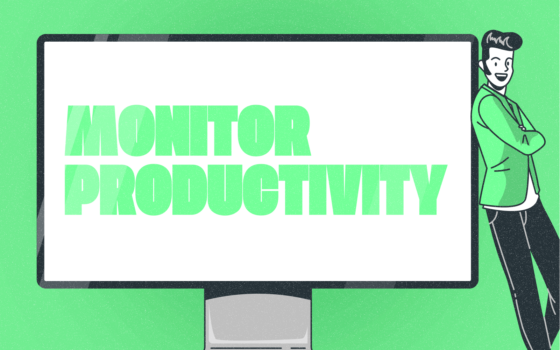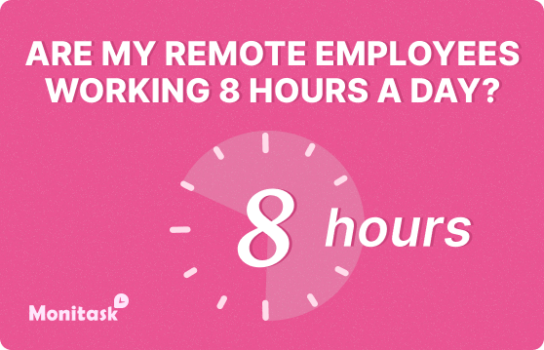What Is Emotional Granularity?
Emotional Granularity Summary: • Definition: The ability to identify and distinguish between various emotional states with precision • Key Benefits: Enhanced emotional intelligence, improved communication, better decision-making • Applications: Personal relationships, workplace interactions, mental health management • Development: Can be improved through mindfulness, emotional vocabulary expansion, and practice
Emotional granularity, also known as emotional differentiation or emotional complexity, refers to an individual's capacity to recognize, label, and distinguish between various emotional states with a high degree of specificity and nuance. This concept, which has gained significant traction in psychological research and practical applications since the early 2000s, plays a crucial role in emotional intelligence and overall well-being.
Understanding Emotional Granularity
At its core, emotional granularity involves the ability to go beyond basic emotional categories like "good" or "bad" and instead identify more precise emotional states. For instance, instead of simply feeling "bad," a person with high emotional granularity might recognize that they're feeling a mix of disappointment, frustration, and a hint of hope.
Dr. Lisa Feldman Barrett, a pioneer in the study of emotions and professor of psychology at Northeastern University, has been instrumental in advancing our understanding of emotional granularity. In her groundbreaking work, she argues that emotions are not fixed, universal categories but rather constructed experiences that vary across cultures and individuals.
"Emotional granularity isn't just about having a rich emotional vocabulary—it's about using that vocabulary to construct more nuanced emotional experiences." – Dr. Lisa Feldman Barrett
The Spectrum of Emotional Granularity
Emotional granularity exists on a spectrum, with individuals falling anywhere from low to high granularity. Here's a comparison to illustrate the difference:
| Low Emotional Granularity | High Emotional Granularity |
| Uses broad terms (e.g., good, bad) | Uses specific terms (e.g., elated, melancholic) |
| Struggles to differentiate similar emotions | Easily distinguishes between subtle emotional nuances |
| May experience emotions as overwhelming | Can parse complex emotional experiences |
| Limited emotional vocabulary | Rich, diverse emotional vocabulary |
| May resort to physical descriptions of feelings | Can articulate emotional states precisely |
Benefits of High Emotional Granularity
Research has shown that individuals with high emotional granularity tend to experience several advantages:
- Improved Emotional Regulation: By accurately identifying emotions, individuals can choose more effective coping strategies.
- Enhanced Communication: Precise emotional language facilitates clearer expression of feelings and needs.
- Better Decision-Making: Understanding nuanced emotions can lead to more informed choices in various life domains.
- Increased Empathy: Recognizing subtle emotional states in others fosters deeper connections and understanding.
- Reduced Risk of Mental Health Issues: Some studies suggest a correlation between high emotional granularity and lower incidence of mood disorders.
Developing Emotional Granularity
While some individuals naturally possess high emotional granularity, it's a skill that can be developed and refined over time. Here are some strategies to enhance emotional granularity:
-
- Expand Your Emotional Vocabulary: Learn new words to describe emotions. Resources like the "Wheel of Emotions" by Dr. Robert Plutchik can be helpful.
-
- Practice Mindfulness: Regular mindfulness meditation can increase awareness of subtle emotional states.
-
- Keep an Emotion Journal: Regularly write about your emotional experiences, trying to be as specific as possible.
-
- Engage in Emotional Labeling: Throughout the day, pause and try to label your current emotional state with precision.
-
- Seek Feedback: Discuss your emotions with trusted friends or a therapist to gain new perspectives.
Emotional Granularity in the Workplace
In professional settings, emotional granularity can be a valuable asset. It contributes to effective leadership, team dynamics, and overall organizational culture. According to a 2023 study published in the Journal of Organizational Behavior, managers with high emotional granularity were rated as more effective leaders by their teams and showed improved decision-making capabilities.
Here's how emotional granularity can benefit various aspects of work life:
| Workplace Aspect | Impact of High Emotional Granularity |
| Conflict Resolution | More nuanced understanding of underlying issues |
| Team Collaboration | Enhanced empathy and interpersonal communication |
| Customer Service | Better ability to address client emotions and needs |
| Stress Management | More effective coping strategies for work-related stress |
| Performance Feedback | More constructive and specific feedback delivery |
Cultural Considerations in Emotional Granularity
It's important to note that emotional granularity can vary across cultures. What's considered a distinct emotion in one culture might not be recognized as such in another. For instance, the German word "Schadenfreude" (pleasure derived from another's misfortune) doesn't have a direct equivalent in many languages, including English.
A 2024 cross-cultural study published in the Journal of Cross-Cultural Psychology examined emotional granularity across 12 countries. The study found significant variations in emotional vocabularies and the recognition of specific emotional states. For example:
- • Japanese participants showed high granularity for emotions related to social harmony and interdependence.
- • American participants demonstrated greater granularity for emotions related to individual achievement and self-expression.
- • Participants from collectivist cultures often used more context-dependent emotional descriptors.
These findings highlight the importance of cultural sensitivity when discussing or applying concepts of emotional granularity in diverse settings.
Emotional Granularity and Mental Health
The relationship between emotional granularity and mental health has been a subject of increasing research interest. A meta-analysis published in Psychological Bulletin in 2023 found a significant inverse correlation between emotional granularity and symptoms of various mental health disorders.
Key Findings on Emotional Granularity and Mental Health: • Higher emotional granularity was associated with a 23% lower risk of developing depression. • Individuals with high emotional granularity showed improved outcomes in cognitive-behavioral therapy interventions. • Emotional granularity training has been proposed as a potential preventive measure for anxiety disorders.
However, it's crucial to note that while emotional granularity can be a protective factor, it's not a panacea for mental health issues. Professional help should always be sought for mental health concerns.
Measuring Emotional Granularity
Assessing an individual's level of emotional granularity can be challenging, as it often relies on self-report measures. However, researchers have developed several methods to quantify this trait:
-
- Experience Sampling Method (ESM): Participants report their emotions multiple times a day over an extended period. The variety and specificity of emotions reported are analyzed.
-
- Emotional Differentiation Task: Individuals are presented with various scenarios and asked to describe their potential emotional reactions in detail.
-
- Linguistic Analysis: Natural language processing techniques are used to analyze the emotional content and complexity of written or spoken narratives.
-
- Physiological Measures: Some researchers are exploring correlations between emotional granularity and patterns of physiological responses, such as heart rate variability and skin conductance.
These methods, while not perfect, provide valuable insights into an individual's capacity for emotional differentiation and expression.
The Future of Emotional Granularity Research
As we look towards the future, emotional granularity continues to be a fertile ground for research and application. Some exciting areas of development include:
- • AI and Emotional Granularity: Researchers at MIT's Media Lab are developing AI systems that can recognize and respond to nuanced emotional states, potentially revolutionizing human-computer interaction.
- • Neuroscience of Emotional Granularity: Advanced neuroimaging techniques are being used to map the neural correlates of high emotional granularity, providing insights into brain plasticity and emotional processing.
- • Emotional Granularity in Education: There's growing interest in incorporating emotional granularity training into school curricula to enhance students' emotional intelligence from an early age.
- • Cross-Disciplinary Applications: Fields as diverse as marketing, political science, and artificial intelligence are exploring applications of emotional granularity in their respective domains.
As of 2024, the global market for emotional intelligence training programs, which often include elements of emotional granularity, is estimated at $3.5 billion (approximately 2.9 billion EUR), with projections suggesting growth to $5.2 billion (4.3 billion EUR) by 2027, according to a report by MarketsandMarkets™.
Conclusion
Emotional granularity represents a fascinating intersection of psychology, neuroscience, and everyday human experience. As our understanding of this concept continues to evolve, its potential applications in personal development, professional settings, and mental health interventions are becoming increasingly apparent.
While the journey to developing high emotional granularity may be challenging, the benefits—ranging from improved relationships to enhanced mental resilience—make it a worthwhile pursuit. As we continue to navigate an increasingly complex emotional landscape, the ability to recognize and articulate our feelings with precision becomes not just a personal asset, but a vital skill for societal well-being.
"In the tapestry of human experience, emotional granularity allows us to see and appreciate the subtle hues and intricate patterns that make each moment unique." – Dr. Maya Patel, Cognitive Neuroscientist
As research in this field progresses, we can anticipate new insights and applications that will further underscore the importance of emotional granularity in our personal and professional lives. The future of emotional intelligence is granular, and it promises a richer, more nuanced understanding of the human emotional experience.


